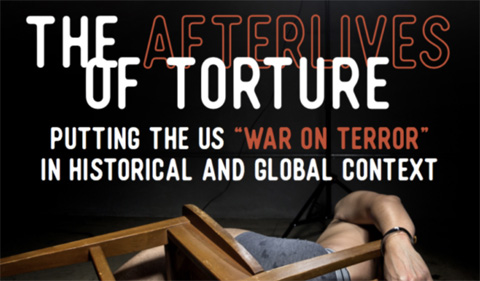
Dr. Lisa Hajjar, Professor of Sociology at the University of California Santa Barbara, discusses “The Afterlives of Torture: Putting the U.S. ‘War on Terror’ in Historical and Global Context” on Wednesday, Nov. 8, from 5 to 6:30 p.m. in Schoonover 145.
The event is co-sponsored by the Center for Law, Justice & Culture, the Middle East and North Africa Studies Certificate, Making & Breaking the Law theme, and War and Peace theme.
President Donald Trump campaigned and won on an electoral platform that included the pledge to bring back waterboarding and other torture techniques. This begs the question of whether the United States could or should resurrect a torture policy. In this lecture, Hajjar will situate these contemporary developments and debates in the context of a longer history of U.S. torture and then explore how the post-9/11 torture program instituted by the Bush administration in 2001 continues to haunt national politics and international relations, despite that the program itself was cancelled by President Obama in 2009.

Dr. Lisa Hajjar
Hajjar uses the concept of “afterlives” to consider three sets of issues: First, how the secrecy that continues to shroud the U.S. record on torture serves to fuel disputes about whether torture “works;” second, how the lack of accountability for officials responsible for torture has created confusion about U.S. obligations under international law; and third, how assertions about executive power and prerogatives by the two previous administrations have paved the way for President Trump to tout the goal of resurrecting the torture program.
Hajjar is a professor of sociology at the University of California – Santa Barbara. Her publications include Courting Conflict: The Israeli Military Court System in the West Bank and Gaza (University of California Press, 2005) and Torture: A Sociology of Violence and Human Rights (Routledge 2013). She is currently working on a book tentatively titled The War in Court: The Legal Campaign against U.S. Torture in the “War on Terror.” Her work focuses mainly on issues relating to law and conflict, military courts and occupations, human rights and international law, and torture and targeted killing.



















Comments